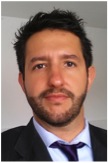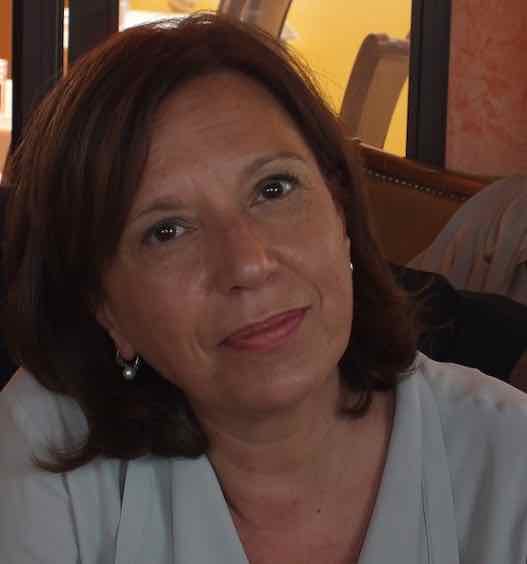Studying at the University of Verona
Academic calendar
The academic calendar shows the deadlines and scheduled events that are relevant to students, teaching and technical-administrative staff of the University. Public holidays and University closures are also indicated. The academic year normally begins on 1 October each year and ends on 30 September of the following year.
Course calendar
The Academic Calendar sets out the degree programme lecture and exam timetables, as well as the relevant university closure dates..
| Period | From | To |
|---|---|---|
| MED ING annuale | Oct 2, 2024 | Sep 30, 2025 |
| MED ING 1° semestre | Oct 2, 2024 | Dec 20, 2024 |
| MED ING 2° semestre | Jan 2, 2025 | Sep 30, 2025 |
| Period | From | To |
|---|---|---|
| Tutti i Santi | Nov 1, 2024 | Nov 1, 2024 |
Exam calendar
To view all the exam sessions available, please use the Exam dashboard on ESSE3. If you forgot your login details or have problems logging in, please contact the relevant IT HelpDesk, or check the login details recovery web page.
Academic staff
Study Plan
The Study Plan includes all modules, teaching and learning activities that each student will need to undertake during their time at the University.
Please select your Study Plan based on your enrollment year.
1° Year
| Modules | Credits | TAF | SSD |
|---|
2° Year It will be activated in the A.Y. 2025/2026
| Modules | Credits | TAF | SSD |
|---|
3° Year It will be activated in the A.Y. 2026/2027
| Modules | Credits | TAF | SSD |
|---|
4° Year It will be activated in the A.Y. 2027/2028
| Modules | Credits | TAF | SSD |
|---|
5° Year It will be activated in the A.Y. 2028/2029
| Modules | Credits | TAF | SSD |
|---|
6° Year It will be activated in the A.Y. 2029/2030
| Modules | Credits | TAF | SSD |
|---|
| Modules | Credits | TAF | SSD |
|---|
| Modules | Credits | TAF | SSD |
|---|
| Modules | Credits | TAF | SSD |
|---|
| Modules | Credits | TAF | SSD |
|---|
| Modules | Credits | TAF | SSD |
|---|
| Modules | Credits | TAF | SSD |
|---|
Legend | Type of training activity (TTA)
TAF (Type of Educational Activity) All courses and activities are classified into different types of educational activities, indicated by a letter.
Diagnostic imaging (It will be activated in the A.Y. 2028/2029)
Teaching code
4S012585
Credits
8
Scientific Disciplinary Sector (SSD)
-
Learning objectives
DIAGNOSTIC IMAGING
To teach the contribution of diagnostic imaging modalities (Conventional Radiology, Ultrasonography, Computed Tomography, Magnetic Resonance, Nuclear Medicine) in evaluating organs and systems and their diseases. The student will need to grasp the basic notions of the interaction of x-rays, ultrasound, radio waves with normal and pathological biological tissues, together with their risks, including radiation, and costs. After attending this course, the student will be able to discuss the main clinical indications of imaging with different modalities and the diagnostic approach to the study of the different organs.
• Physical principles underlying of conventional radiology, computed tomography, ultrasonography, magnetic resonance and nuclear medicine
• CT and MR technology: state-of-the-art and upcoming technologies
• Digital systems for image visualization and processing and for reporting. CAD software. Radiomics principles and software. Legal issues on image and data sharing
• Contrast agents: pharmacology, rationale of use, mode of administration, contraindications, adverse effects
• Respiratory imaging
• Cardiovascular imaging
• Gastrointestinal Imaging
• Hepato-bilio-pancreatic imaging
• Genitourinary imaging
• Breast Imaging
• Central Nervous System Imaging
• Basics of interventional radiology
• Basics of radiobiology. Deterministic and stochastic effects. Radiation protection.
• Basics of Nuclear Medicine.
• Current use and future developments of Artificial Intelligence in Diagnostic Imaging
Artificial Intelligence for Image Processing Module.
The module aims to introduce the main techniques for extracting diagnostic information from biomedical imaging data, effectively visualizing data of different types, and reconstructing measurable three-dimensional models from the data.
Diagnostic Imaging Tutorials
The small group activities aim to familiarize students with the environments in which diagnostic investigations and imaging-based therapeutic procedures are performed and the practical approach to the interpretation of diagnostic imaging exams.
Examination Methods
Oral examination finalized to verify the knowledge of the course contents. Artificial Intelligence Verification of learning will be carried out through: - written test with questions and exercises - evaluation of laboratory activities
Evaluation criteria
The test verifies the level of knowledge of the theoretical contents and the ability to use language in describing the contents of the program. The exam is passed with a score equal to or greater than 18/30. Artificial Intelligence At the end of the course, the student must be able to: -understand the fundamentals of the primary diagnostic image processing, 2D and 3D segmentation and reconstruction and visualization algorithms, -evaluate the performance of different image processing and visualization methodologies applied in medicine and choose the most appropriate approach for a specific problem, -analyze the design choices of a medical decision support system based on the processing and display of diagnostic images. The final grade will be represented by the weighted average over the number of CFUs of the grades given to the different exams.
Free choice courses
Modules not yet included
Career prospects
Module/Programme news
News for students
There you will find information, resources and services useful during your time at the University (Student’s exam record, your study plan on ESSE3, Distance Learning courses, university email account, office forms, administrative procedures, etc.). You can log into MyUnivr with your GIA login details: only in this way will you be able to receive notification of all the notices from your teachers and your secretariat via email and soon also via the Univr app.

 giuseppe.bertini@univr.it
giuseppe.bertini@univr.it
 045-802-7682
045-802-7682








